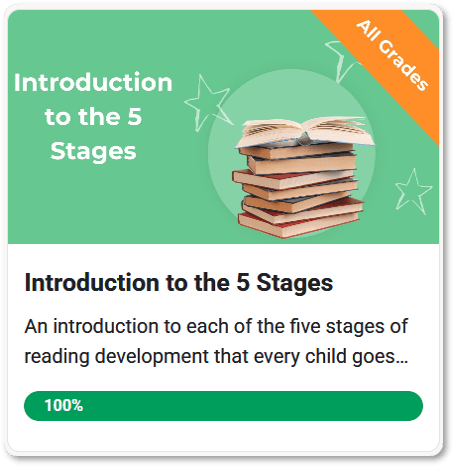- Raising Skilled Readers
- Posts
- Productive Struggle, or Reading Burnout?
Productive Struggle, or Reading Burnout?
Most kids experience some reading resistance and frustration as their learning evolves. Here's how to manage it.

With reading scores slipping nationwide, parents and teachers alike are applying more and more pressure to kids. Their well-intentioned goal is to encourage kids to make progress with their reading skills.
But there is a risk of pushing too much. This can be counterproductive and deepen resistance and anxiety about reading. In fact, it can lead to kids avoiding reading altogether, which snowballs into more academic apathy and long-term frustration. Proving the point, a recent study by Common Sense Media found nearly a third of American teens already feel burnt out!
So as a parent, how can you tell whether your child is just experiencing the normal ups and downs of becoming a reader or on the verge of a burnout?
While learning to read is highly personal, most kids are expected to master specific reading skills and achieve milestones at certain ages. Understanding these milestones can help you gauge where your child is now and how hard to push to get him or her to the next level with a healthy amount of productive struggle - not overwhelm.
In the rest of this newsletter, we’ll touch on a different milestone for each age group and explore why students may feel frustrated as they try to achieve it.
In today’s issue:

Decoding Difficulties
At the Institute of Reading Development, we often remind parents that learning to read is hard work! The youngest readers are still building core phonics skills: the ability to match letters to sounds in order to “decode” whole words.
10-15 minutes of decoding practice in a book is usually plenty for these students, and trying to do more isn’t productive. So, if your child is complaining, pushing the book away, even holding his head in his hands… take a break for now, reset, and try again tomorrow. Refuel his desire to learn by reading a fun book to him instead.
Sounding out a story word-by-word takes effort, but the payoff of is huge. As Cindy Jiban puts it in a recent NWEA blog, “Decoding matters. Big time.” The truth is that students can’t move on to develop reading comprehension until they’ve mastered foundational phonics skills. So don’t give up!


Fluency Fumbles
Once students become more proficient with their decoding, the next step is usually developing ‘fluency,’ or the ability to read smoothly and accurately, with expression.
Citing fluency as an important but often overlooked element of reading success, EdSurge interviewed renowned reading researcher, Dr. Timothy Rasinski, about its role. Dr. Rasinski describes fluency as “a critical bridge linking word study to comprehension.” Once your child is fluent, and less time is spent on decoding individual words, all the words can flow together smoothly into a meaningful story.
Kids who are struggling to become fluent sound choppy, robotic, and labored when reading aloud. They stop and start often. If your child reads this way, one of the best ways to help is modeling how to read a passage out loud with expression, then having him or her read the same passage back to you.


Reading Speed Slump
Teenagers today face pressure to achieve a lot in many areas of their life, with precious few hours in the day. It’s no wonder that when their reading rate is significantly behind the average of their peers, they’re more susceptible to burnout.
If they can’t finish all of their school assignments in a reasonable amount of time, how can they possibly ‘keep up’? As an 11th grader quoted by Common Sense Media puts it - "Just study, study, study. Grind, grind, grind. It’s an exhausting cycle.”
Furthermore, if the material that they do manage to get through is read too slowly, it feels like they are watching a movie in slow motion! It is nearly impossible to understand the plot. The potential negative impact of teens reading slowly is brought sharply into focus when you consider the following. According to Hasbrouck and Tindal’s 2017 research, a full half of 8th graders read out loud more slowly than the average person speaks (150 words per minute).

5 Stages of Reading Development
Learn even more about milestones in each of the 5 stages of reading development that all kids go through. Join our free Raising Skilled Readers parent community for helpful guides and information to support your child’s reading journey.
